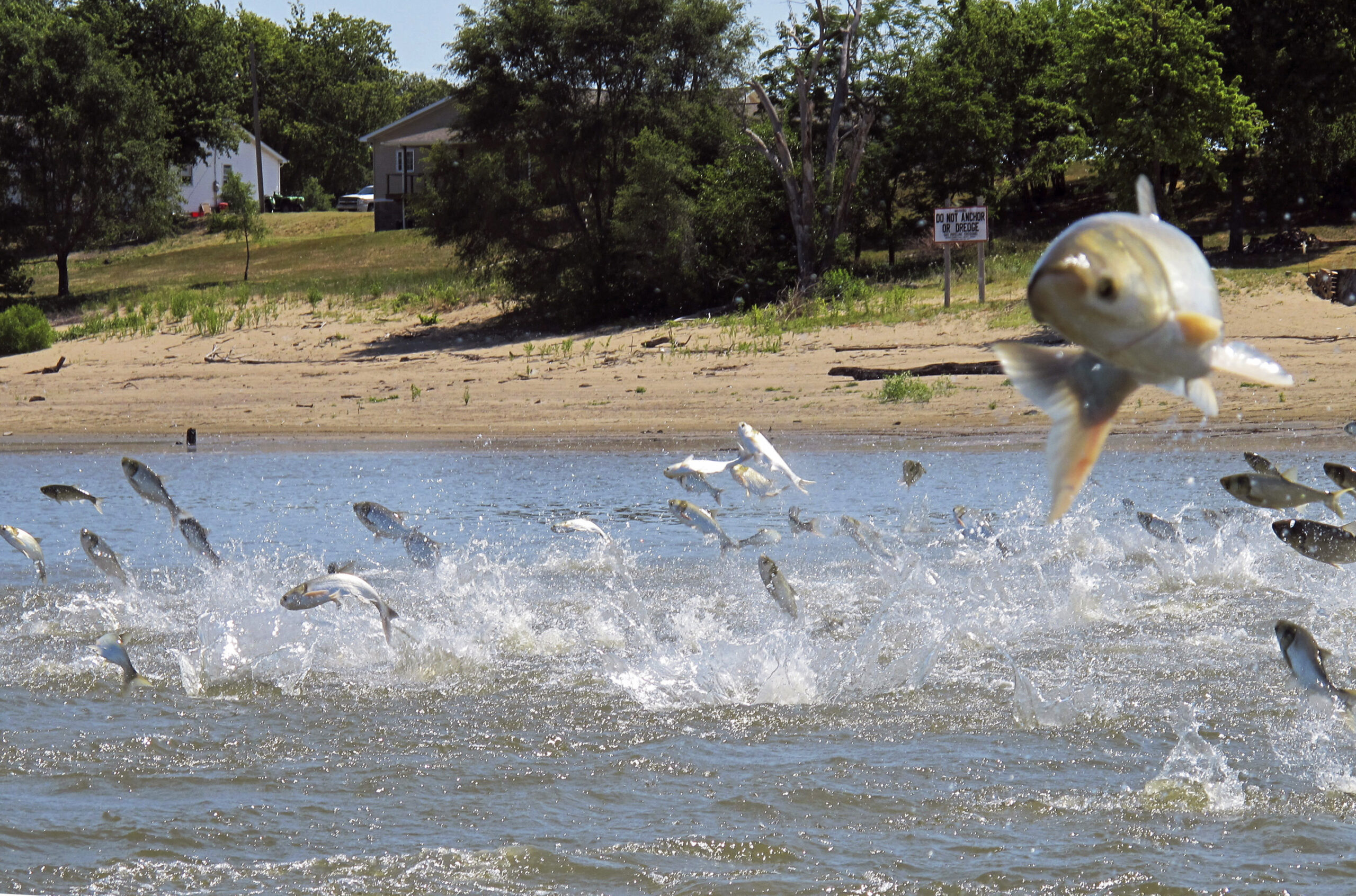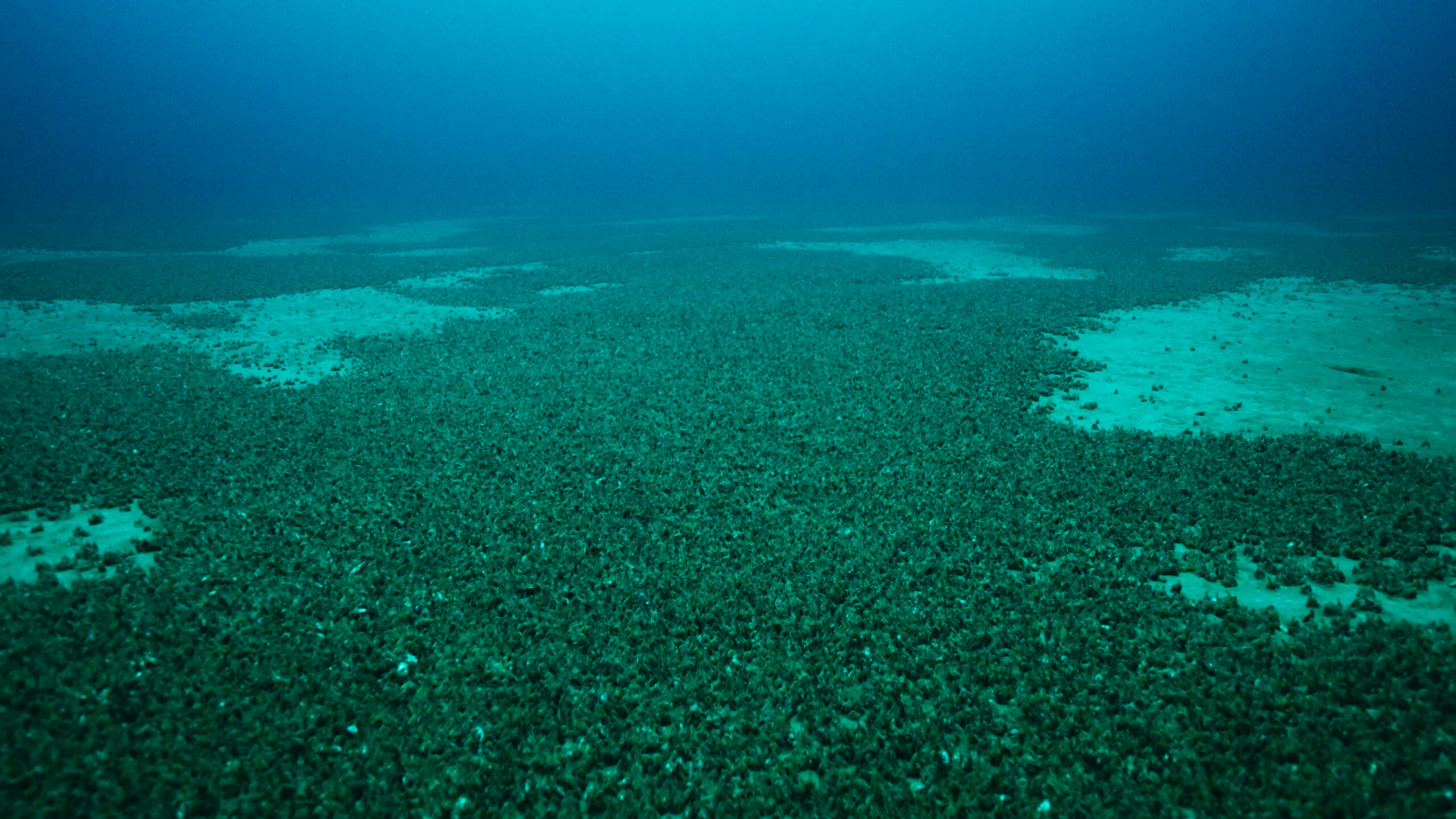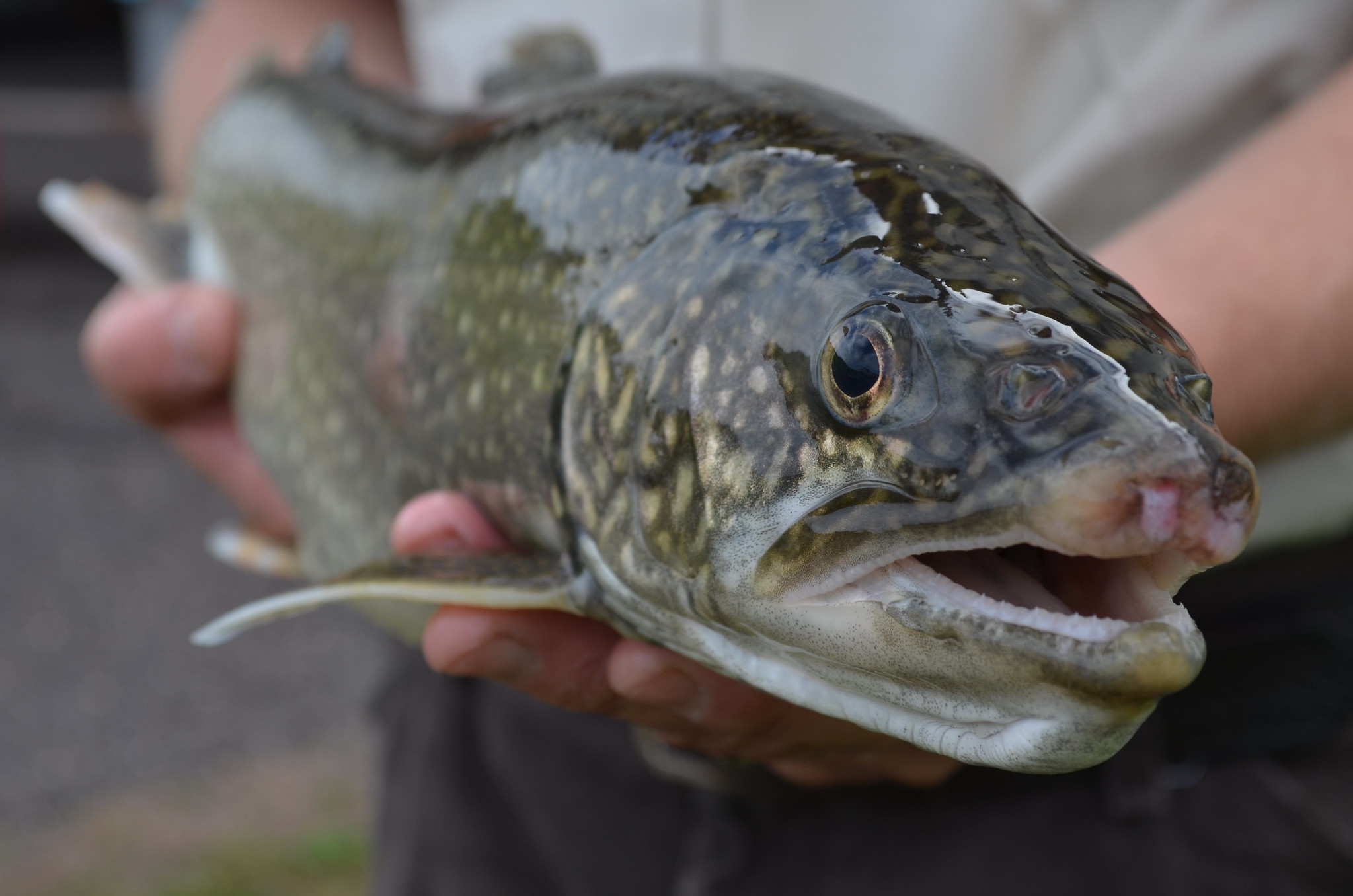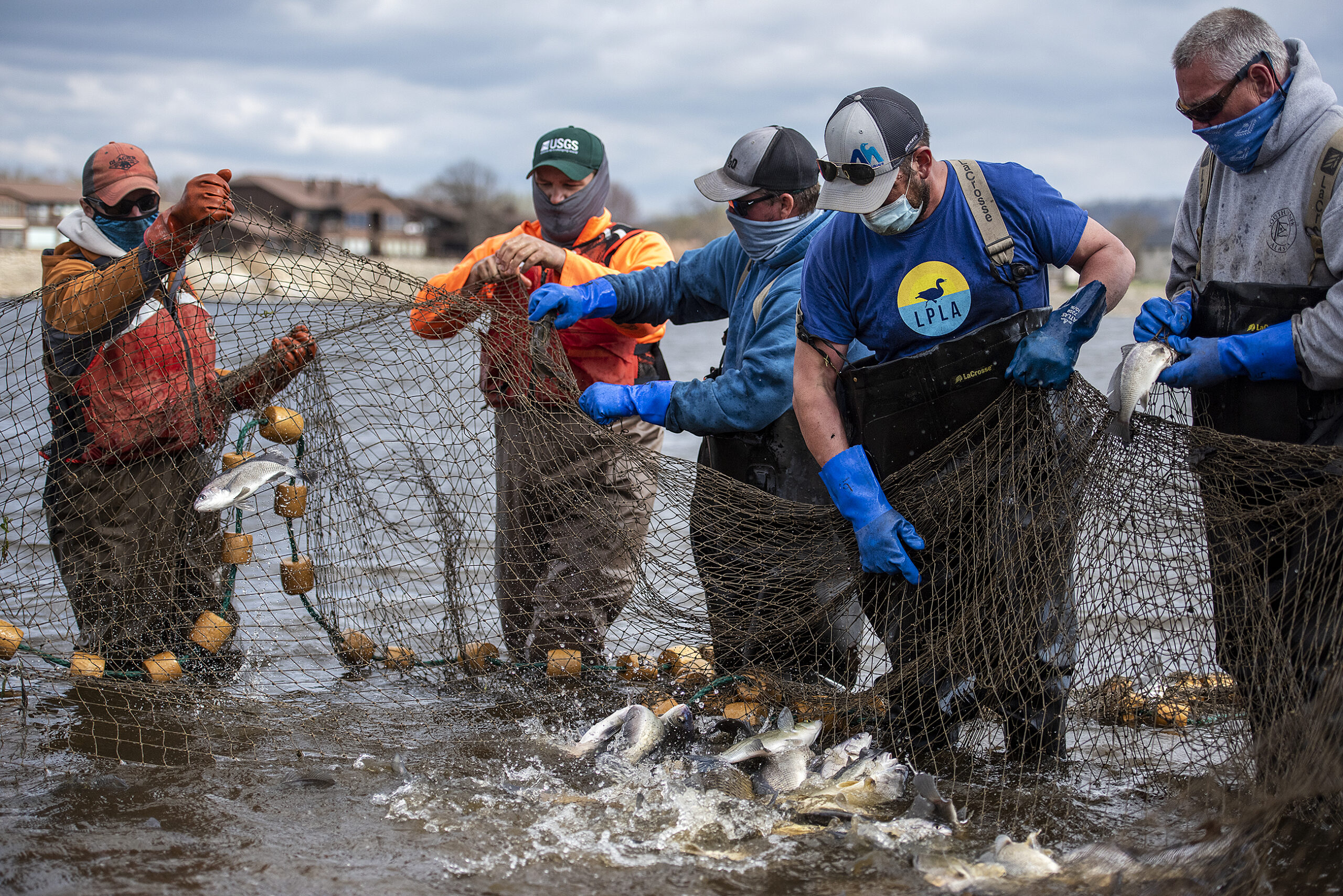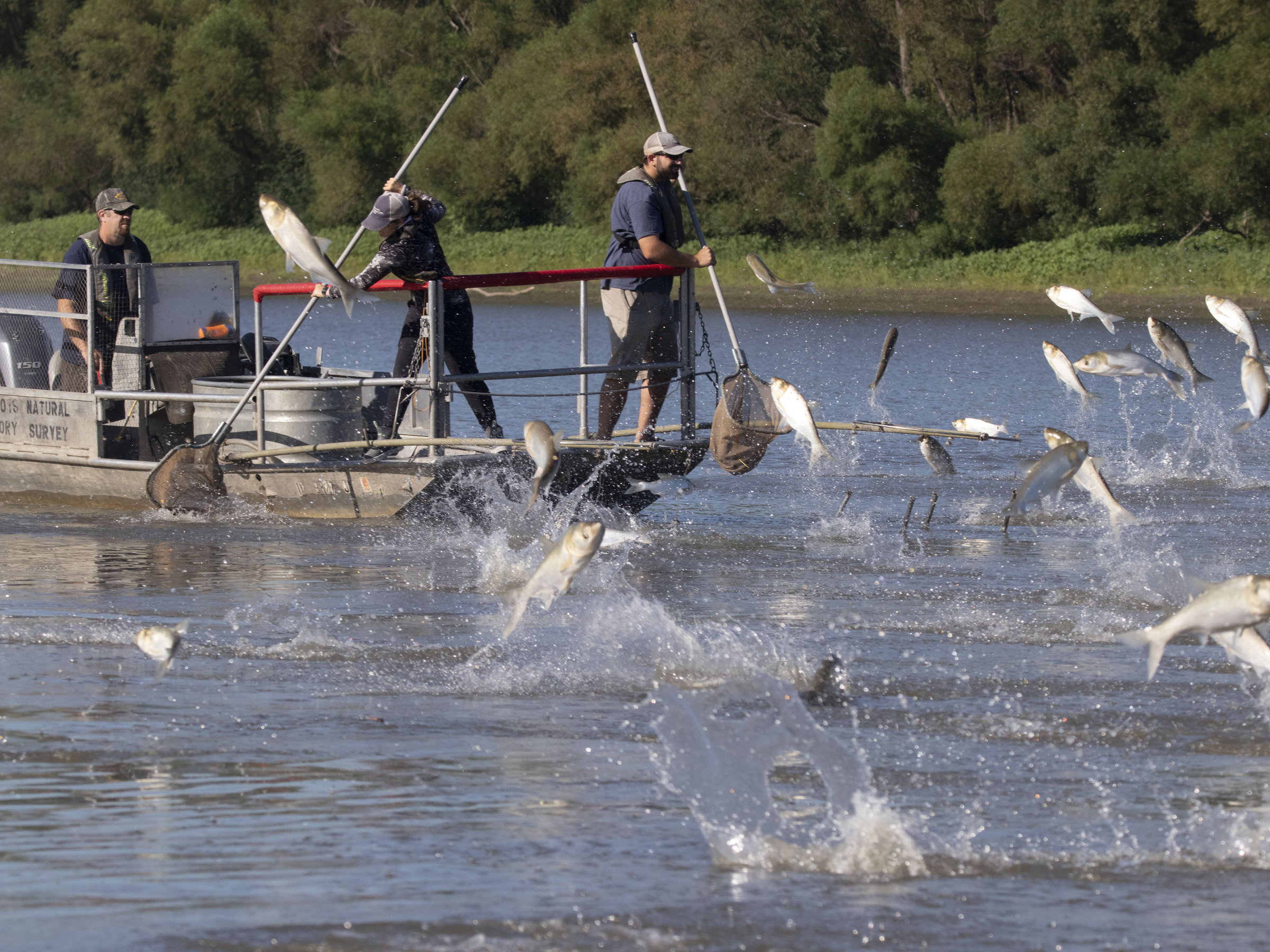Efforts to build a barrier to keep invasive carp out of the Great Lakes are one step closer to reality.
The U.S. Army Corps of Engineers announced Wednesday that it awarded the first construction contract on the $1.15 billion project at the Brandon Road Lock and Dam on the Des Plaines River in Joliet, Illinois.
The Corps awarded a $15.5 million contract to Miami Marine Services to prepare the site and remove rocks from the river bed. The contractor will partner with Milwaukee-based Michels Construction.
It’s the first of three construction phases that will install defenses there to keep the fish from getting past the crucial choke point. Those tools include noisemakers, a bubble curtain, an electric barrier and a flushing lock.
Molly Flanagan, chief operating officer with the Alliance for the Great Lakes, hailed the announcement.
“By moving ahead with construction in a timely manner, the Army Corp of Engineers and the states of Illinois and Michigan clearly recognize the threat invasive carp pose to the Great Lakes,” Flangan said in a statement. “The Alliance appreciates their continued dedication to stopping invasive carp from wreaking havoc on the Great Lakes.”
The invasive fish were first introduced to the southern United States in the early 1960s and 1970s, according to the U.S. Fish and Wildlife Service. If carp get past the lock and dam, they could enter the Chicago Area Waterway System, a network of canals and rivers that connects to Lake Michigan. Invasive carp threaten to outcompete native fish and harm the $20 billion fishing and boating industries on the Great Lakes.
Earlier this year, Illinois signed a key agreement with state and federal officials to advance the project. The agreement unlocked $274 million in federal funding for construction at the Brandon Road Lock and Dam. The federal government will fund 90 percent of the project’s cost. Michigan and Illinois will pay $114 million for the barrier.
The lock will close weekdays when construction begins on Jan. 28. Work is expected to continue through March.
Stay informed on the latest news
Sign up for WPR’s email newsletter.
Wisconsin Public Radio, © Copyright 2025, Board of Regents of the University of Wisconsin System and Wisconsin Educational Communications Board.
